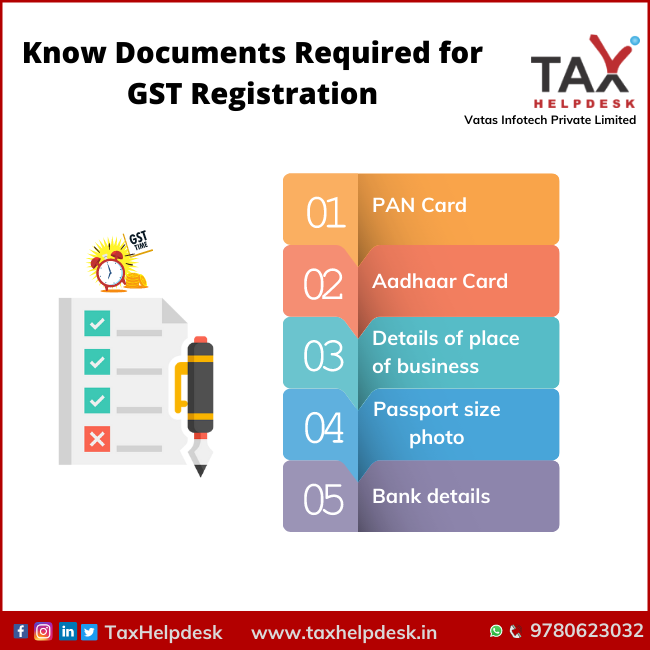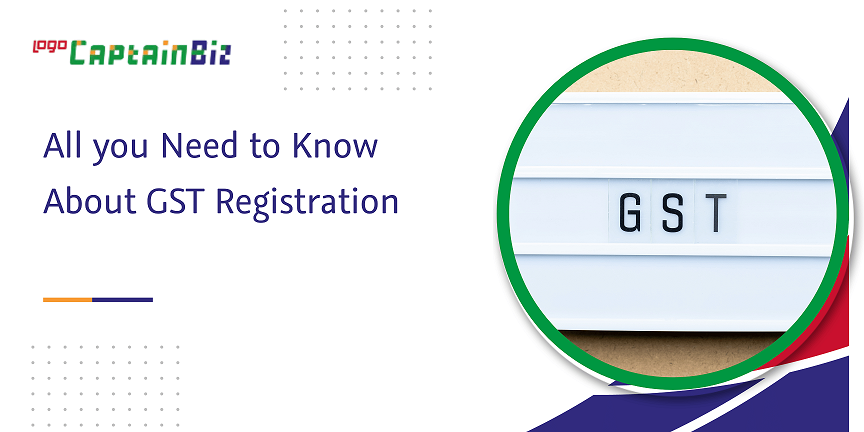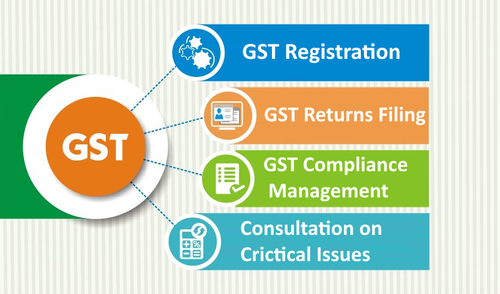Step-by-Step Guide to GST Enrollment: Everything You Required to Know About the Application Refine

Eligibility Requirements for GST Registration
Meeting the eligibility requirements for GST registration is a fundamental demand for services running in India. According to the Product and Provider Tax Obligation (GST) law, entities entailed in the supply of services or goods have to sign up for GST if their yearly turnover exceeds the suggested limit. For regular organizations, this limit is established at 40 lakhs for products suppliers and 20 lakhs for provider. Furthermore, specific special classification states have a reduced threshold of 10 lakhs. Businesses involved in inter-state supply, informal taxable persons, non-resident taxed individuals, and those called for to pay tax obligation under the reverse charge device need to additionally register for GST, irrespective of their turn over.
Moreover, specific businesses such as shopping operators, representatives of a distributor, input service distributors, and individuals providing via shopping systems are likewise called for to register for GST, no matter their turn over. Comprehending and fulfilling these eligibility criteria are critical steps for services aiming to abide by the GST regulations in India.
Required Papers for Application
When making an application for GST registration, services need to provide particular records to finish the application process effectively and properly. The needed papers differ depending on the sort of service entity seeking enrollment. For a single proprietorship, the records generally consist of the owner's frying pan card, Aadhaar card, address proof of the workplace, savings account statements, and photographs. Collaboration companies require to send collaboration deed, PAN cards of partners, Aadhaar cards, address evidence of the major location of company, savings account declarations, and photographs. Companies should supply their Certification of Unification, Memorandum of Association, Articles of Association, PAN cards of directors, Aadhaar cards, address proof of the authorized office, financial institution statements, and photos. Furthermore, all entities need to submit proof of the location of business, like rental contract or power bill, and permission types. Making certain that all essential records remain in order and sent appropriately is crucial for a smooth GST enrollment procedure.
Step-by-Step Application Process
To efficiently finish the GST registration procedure, companies must comply with a structured detailed application procedure. The initial step is to check out the GST online portal and click the 'Services' tab, adhered to by 'Registration' and after that 'New Enrollment.' Next, provide the essential details such as the lawful name useful site of business, PAN, e-mail address, mobile number, and state in which the organization is situated. After going into the details, an OTP will certainly be sent to the signed up mobile number and e-mail for verification. As soon as the OTP is confirmed, a Temporary Recommendation Number (TRN) is created which can be utilized to conserve the application and return to it later.

Comprehending GST Enrollment Costs
Recognizing the fees connected with GST enrollment is important for services looking for conformity with tax policies. The GST registration fees differ relying on the kind of company entity looking for registration. For regular taxpayers, the charge is 1000, split equally in between the Central and State Federal Governments. For services running in several states, the cost is 5000, likewise divided in between the Central and State Federal Governments. When it comes to non-resident taxpayers or laid-back taxpayers, the registration fee is 5000. Additionally, certain entities are excluded from paying the enrollment fee, such as input service suppliers, UN bodies, consular offices, and so on. When preparing their compliance budget, it's crucial for businesses to variable in these registration costs. Failing to pay the requisite fees can result in delays in the enrollment process and non-compliance with GST regulations, causing charges and lawful effects. For that reason, understanding and budgeting for these fees are indispensable parts of the GST enrollment procedure.
Avoiding Common Application Mistakes
In browsing the GST enrollment process, sidestepping usual application mistakes is essential for organizations intending to improve compliance treatments and stay clear of possible obstacles. In addition, companies frequently overlook the relevance of picking the appropriate service structure throughout registration. By thoroughly assessing and verifying all info provided throughout the GST check here registration application, organizations can alleviate these common mistakes and facilitate a smoother enrollment process.
Final Thought
Finally, understanding the qualification criteria, needed documents, application procedure, costs, and typical mistakes to prevent are essential action in efficiently signing up for GST. By adhering to the step-by-step overview offered, businesses can make sure a smooth and reliable application procedure. It is crucial to adhere to the guidelines stated by the authorities to avoid any hold-ups or complications in the registration process.

The GST enrollment fees differ depending on the kind of company entity using for registration. In addition, businesses commonly overlook the value of picking the right organization structure during registration - Get your GST registration done today in Singapore. By meticulously evaluating and verifying all information supplied throughout the GST enrollment application, businesses can minimize these common mistakes and help with a smoother registration process
Comments on “Top Tips for Getting Your GST Registration Done Today in Singapore”